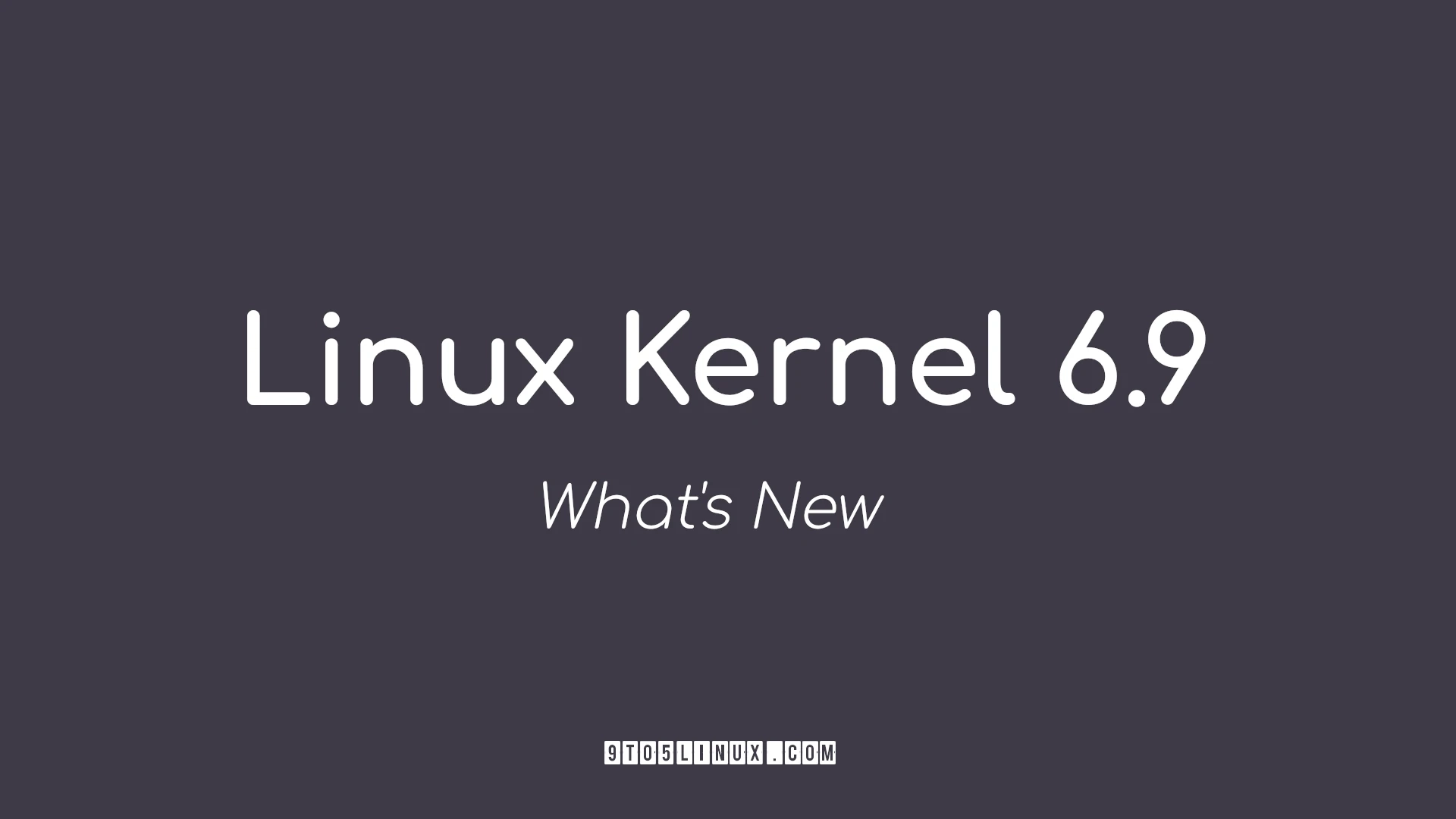Latest Updates: Official Release and New Features of Linux Kernel 6.9
Linus Torvalds announced the launch and general availability of Linux kernel 6.9 today, extending new features and enhanced hardware support as the newest, stable version of the Linux kernel.
The notable enhancements in Linux kernel 6.9 encompass support for Rust on AArch64 (ARM64) architecture, incorporation of Intel FRED (Flexible Return and Event Delivery) mechanism for advanced low-level event delivery, support for AMD SNP (Secure Nested Paging) guests, and addition of a new dm-vdo (virtual data optimizer) target in the device mapper to facilitate inline deduplication, compression, zero-block removal, and thin provisioning.
Linux kernel 6.9 additionally enables the Named Address Spaces feature in GCC (GNU Compiler Collection) that endorses efficient optimization of per-CPU data access by the compiler, establishes initial support for FUSE passthrough to allow files hosted by a user-oriented FUSE server to be served directly by the kernel, lends support for the dynamic upgradation of Energy Model at runtime, and rolls out a novel LPA2 mode for ARM 64-bit processors.
With the Linux kernel 6.9, the Rust language receives an upgrade to version 1.76.0. Further, the update modifies the locking mechanism within the GPIO subsystem, extends support for the ORC stack unwinder and live kernel patching for the LoongArch architecture, mitigates the RFDS (Register File Data Sampling) vulnerability affecting Intel Atom processors, and incorporates support for the membarrier() system call for the RISC-V architecture.
Significant upgrades in Linux kernel 6.9 embrace LZ4 compression backing for the state of hibernation image building and loading, a feature for NFSD managers to renounce NFSv4’s open and lock condition, subvolume offspring btree backing, superior journal pipeline, discard route enhancements, better directory structure verification, and a fresh mm helper in the bcachefs file structure introduced in Linux kernel 6.8.
The F2FS (Flash-Friendly File System) flash file structure procured zoned block apparatus support, per-file compression, and upgraded data revival after an unexpected power cut on a zoned block apparatus, the exFAT file structure received enhancements to directory synchronization performance, the EXT4 file structure procured an inode flag for atomic writes and online resize improvements, and the Btrfs file structure received further zoned mode fixes and minor performance optimizations.
In addition to this, the performance of memory-management has been advanced, the perf appliance procured numerous new functions, BPF token support was introduced for delegating a subset of BPF subsystem role from privileged system-wide daemons such as systemd, and ARM 64-bit processors procured initial support for the contiguous PTE bit to let the TLBs map an array exceeding a single PTE if the array is physically contiguous.
Networking augmentations in Linux 6.9 comprise of TCP_NOTSENT_LOWAT support in MPTCP, backing for forwarding ICMP Error messages in IPSec, support for autonomous control state machine for bonding per IEEE 802.1AX-2008 5.4.15, support for hosts with numerous disjoint MCTP networks, new support for 2.5GE and 5GE Energy Efficient Ethernet (EEE) link modes, SPP (signaling and payload protected) AMSDU support, and wider-bandwidth OFDMA backing.
New drivers are included in Linux 6.9 for ChromeOS’s Embedded Controller, Marvell’s Octeon PCI Endpoint NIC VF, RENESAS’s FemtoClock3 Wireless clock generator, Qualcomm’s Snapdragon X Elite (X1E80100) processor, Samsung’s Wireless Action Mouse, Keyboard, GamePad, Book Cover, Universal Keyboard, and HOGP Keyboard Bluetooth devices, Snakebyte’s gamepads, as well as Goodix Berlin’s I2C and SPI touch controllers.
It also adds more AMD IP blocks to support future AMD hardware, updates the Intel Xe graphics driver, adds Displayport tunneling support for the Intel i915 graphics driver, adds HDMI support for the Rockchip RK3128 processor, adds SoundWire support for AMD ACP 6.3 systems and DSPless mode support for Intel Soundwire systems, battery charge control support for Fujitsu laptops, and refresh rate key support for Lenovo IdeaPad laptops.
Last but not least, Linux kernel 6.9 marks the EXT2 file system as being deprecated as it’s not (and it won’t be) patched against the Year 2038 problem. While you can still use EXT2 in Linux kernel 6.9, the Linux kernel developers recommend avoiding it. On the same note, Linux 6.9 finally removes the old NTFS filesystem implementation, defaulting to NTFS3 for supporting NTFS filesystems.
Linux kernel 6.9 will be a short-lived branch supported for only a couple of months. It will be succeeded by Linux kernel 6.10, whose merge window has now been officially opened by Linus Torvalds. Linux kernel 6.10 is expected to be released in mid or late September 2024. Meanwhile, you can download Linux kernel 6.9 right now from Linus Torvalds’ git tree or the kernel.org website.
ColoCrossing excels in providing enterprise Colocation Services, Dedicated Servers, VPS, and a variety of Managed Solutions, operating from 8 data center locations nationwide. We cater to the diverse needs of businesses of any size, offering tailored solutions for your unique requirements. With our unwavering commitment to reliability, security, and performance, we ensure a seamless hosting experience.
For Inquiries or to receive a personalized quote, please reach out to us through our contact form here or email us at sales@colocrossing.com.

